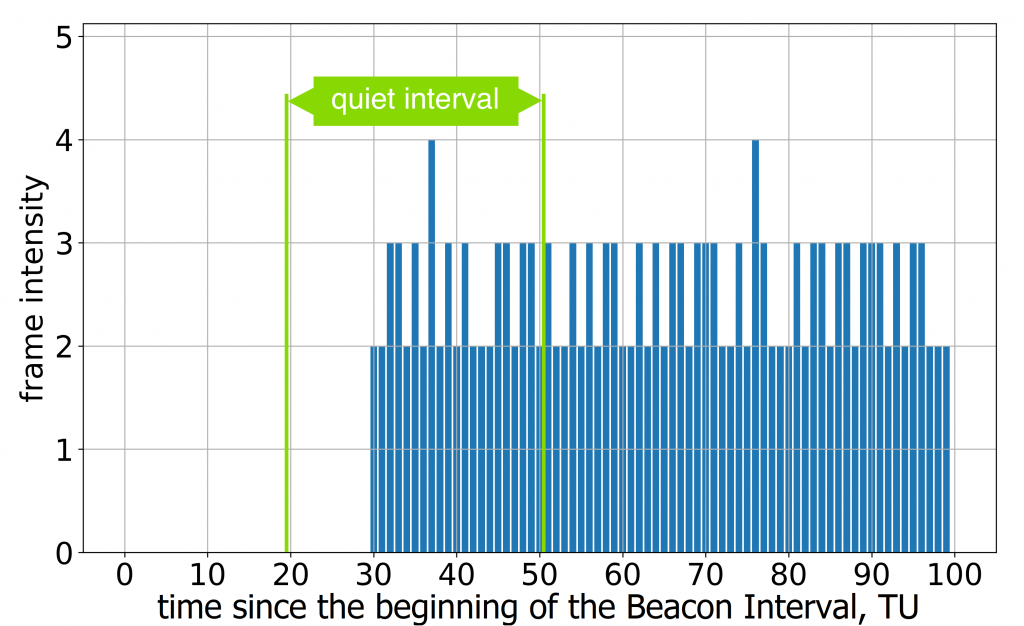Experimental study of RTA-related Quieting mechansim by WNL members published in MDPI Sensors
An article “False Protection of Real-Time Traffic with Quiet in Heterogeneous Wi-Fi 7 Networks: An Experimental Study” by Andrey Barannikov, Ilya Levitsky and Evgeny Khorov is published in the MDPI Sensors journal. A version of the article is available in MDPI Sensors and ResearchGate website.
When developing a new 802.11be standard amendment for the Wi-Fi 7 technology, one of the main tasks has been improving the mechanisms of servicing real-time traffic. A new mechanism Restricted Target Wake Time (R-TWT) has been proposed with the aim to enhance real-time traffic protection from devices of previous generations. This work is the first to experimentally investigate its effectiveness in real usage scenarios.

A vital feature of Wi-Fi networks is natural coexistance of devices from different generations in the same network. However, legacy devices cannot support the newly developed R-TWT mechanism. Therefore, for correct operation, R-TWT uses the existing Quieting Framework and requires that devices implement it accurately. However, the experiments have revealed critical inconsistencies between the functionality specified in the Wi-Fi standard and that of real devices. Experiments have shown that most devices do not have the required support. The work also analyzes the existing problems in the Quieting Framework implementation and suggests possible approaches to fix them.
The results show that unless manufacturers correct the identified inconsistencies, the use of the Quieting Framework to support the R-TWT mechanism will be ineffective. The authors hope that the scientific community will pay attention to these results and help prevent problems that will arise in the future when servicing real-time applications.
The paper is published in MDPI Sensors journal that provides advanced information for science and technology in the field of sensors and their applications. The journal regularly publishes comprehensive reviews and research articles. The main goal is to encourage scientists to publish their experimental and theoretical results in as much detail as possible.
